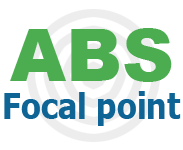News
A guide to the ABS Clearing-House
The ABS Clearing-House (ABSCH) website is the main platform for information on Access and Benefit-Sharing (ABS) legislation and should be the first place to look if you (plan to) use genetic resources and associated traditional knowledge. As the website recently got updated, we will take a closer look at where to find what information.
The ABS Clearing-House (ABSCH) is a platform where information on access and benefit-sharing (ABS) is published by countries and the Secretariat of the Convention on Biological Diversity (CBD). By making relevant information regarding ABS available, the ABSCH helps users to find out how genetic resources and associated traditional knowledge can be accessed in the correct way. It is administered by the Secretariat of the CBD and the country information has to be kept up-to-date by the authorities of the countries.
On the homepage, you can find more information about the ABSCH, a map of countries that are Party to the Nagoya Protocol, announcements, and recently published national and reference records. The navigation bar at the top of the page provides links to the Search Page, Country Profiles and other parts of the ABSCH.
Country Profiles
Every country has a Country Profile on the ABSCH website. The Country Profiles can be accessed through the map on the homepage or the navigation bar at the top of each page of the website. The Country Profiles provide ABS information that may be relevant to (potential) users of genetic resources and associated traditional knowledge from a country. Countries that are not Party to the Nagoya Protocol may also have provided information on their Country Profile, though this information is generally limited.
Most Country Profiles provide the names and contact details of the ABS National Focal Point (NFP) and the Competent National Authority (CNA). The National Focal Point of a country provides information on legislation, rules and procedures governing access to genetic resources and associated traditional knowledge from that country. When looking to obtain genetic resources and associated traditional knowledge, it is recommended to always contact the NFP of the provider country to ask about the current ABS legislation. The Competent National Authority is responsible for granting access and advising on applicable procedures and requirements for obtaining Prior Informed Consent (PIC) and entering into Mutually Agreed Terms (MAT), if required by the provider country.
In addition, countries may also provide the following information:
- Legislative, Administrative or Policy Measures: a comprehensive overview of the ABS measures in the selected country.
- ABS Procedure: a practical overview on how users can apply for access to the country’s genetic resources and associated traditional knowledge.
- Internationally Recognized Certificates of Compliance: issued certificates serving as evidence that genetic resources and associated traditional knowledge from that country have been accessed in accordance with national ABS rules.
- National Websites or Databases: information on and links to national websites or databases that are relevant for ABS.
- Checkpoint: the national entities responsible for monitoring ABS compliance of users of genetic resources and associated traditional knowledge in that country.
- Interim National Reports: reports on the measures that the country has taken to implement the Nagoya Protocol. For users, questions 11 and 17 in particular may be useful, as they indicate whether PIC and MAT were required when the report was published. However, do note that many of these reports were published some years ago and may not be up to date any more. It is recommended to contact the country’s NFP and ask about the current ABS legislation.
Finding ABS documents
Through the Search page, a wide range of ABS information and resources can be accessed. By using global filters, it is possible to select by record types, keywords, countries, regions and dates, making it easier to find documents relevant to you. The results are displayed per category: national records (for individual countries), reference records (general ABS resources, which also include codes of conduct, guidelines, best practices and standards) and SCBD records.
For example, if you select ‘Record types: National Websites or Databases’ and ‘Country: Netherlands’, you will find the record ‘Website of the ABS Focal Point of the Netherlands’. For a more detailed explanation of the Search page, you can take a tour of the Search page.
For more information on resources that may help you to learn more about ABS, read the article ‘ABS resources: where to find what?’.
